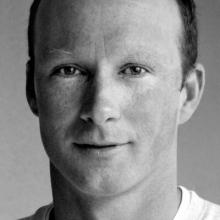What Is It
Socrates was executed for corrupting the youth. In America, youth below college age are usually not exposed to philosophy in the classroom. Is philosophy all that dangerous? Should it be taught to teenagers? Or would this lead to a generation of self-absorbed and skeptical young people, shirking their duties in order to worry about the meaning of life? John and Ken are joined by Jack Bowen, author of The Dream Weaver and If You Can Read This: The Philosophy of Bumper Stickers, for a program recorded with a live audience of young philosophers at Palo Alto High School.
Listening Notes
The claim that philosophy corrupts the youth is centuries old – Socrates, for instance, was sentenced to death upon charges of said corruption. So begins today’s show, recorded live in front of an audience of young philosophers at California’s Palo Alto High School. Ken claims that Socrates did not corrupt the youth but rather empowered them to question authority and their imparted wisdom. John defends the opposing argument, saying that it is dangerous for youth to question the authority of their elders and teachers because philosophy can lead individuals to doubt anything, providing great room for uncertainty in life. Youth must accommodate to authority, not rebel against it. Ken clarifies that philosophy is not about simple rebellion but rather about seeking knowledge, at which point John gives up his argument, concluding the segment.
Ken and John introduce writer Jack Bowen, author of bestseller novel The Dream Weaver and high school teacher of philosophy. John asks Jack when he started to think about philosophy and whether he feels that philosophy corrupted him in his youth. Jack replies that John’s book was actually his inspiration, and that he does not at all feel as though philosophy corrupted him, even if his parents might say otherwise. John then asks Jack for his thoughts on the scarce availability of philosophy courses for youth. Jack believes this is because the subject is not testable, because there is no empirical way to tell if a student excels at philosophy or not. Jack continues that philosophy is inherently counter-culture because of its questioning essence and that its empowering nature lies exactly in that one comes to learn how to think for oneself rather than memorizing information.
Ken asks Jack how philosophy can help individuals find answers to the “who-shall-I-be” question, the question of self-identity as it relates to growth. In some sense, Jack says, philosophy is a method of self-help. It is a means to making an informed decision, and can benefit just about anybody who is interested in advancing their knowledge of the self. John invites audience participation to the discussion. Questions such as to what extent the study of philosophy at the high school level is counterintuitive to the purpose of a high school education and whether existentialism or self-ownership is more important than empathy are discussed.
The show concludes with Jack’s reflection that while philosophy can be scary, it also creates much purpose in one’s life. John and Ken consider the impact of philosophy on youth and encourage the audience to philosophize.
- Roving Philosophical Reporter (Seek to 5:13): Philosophy Talk's Reporter Jill Replogle gets a first-hand account of the reach, expanse, and effects of philosophy on the young by talking to two high school seniors.
- 60-Second Philosopher (Seek to 49:02): Ian Shoales offers comical advice to high school students about to embark on the course of a higher education.




Comments (1)
onlineshiaquran...
Wednesday, June 4, 2025 -- 7:16 AM
great philospher socrate andgreat philospher socrate and Our Quran Teaching Center is recognized worldwide as the leading online institution. specially made for the children and adults of Shia families living in foreign countries. our Shia Quran Teacher Online provides online classes worldwide. Both children and adults are taught in our institution